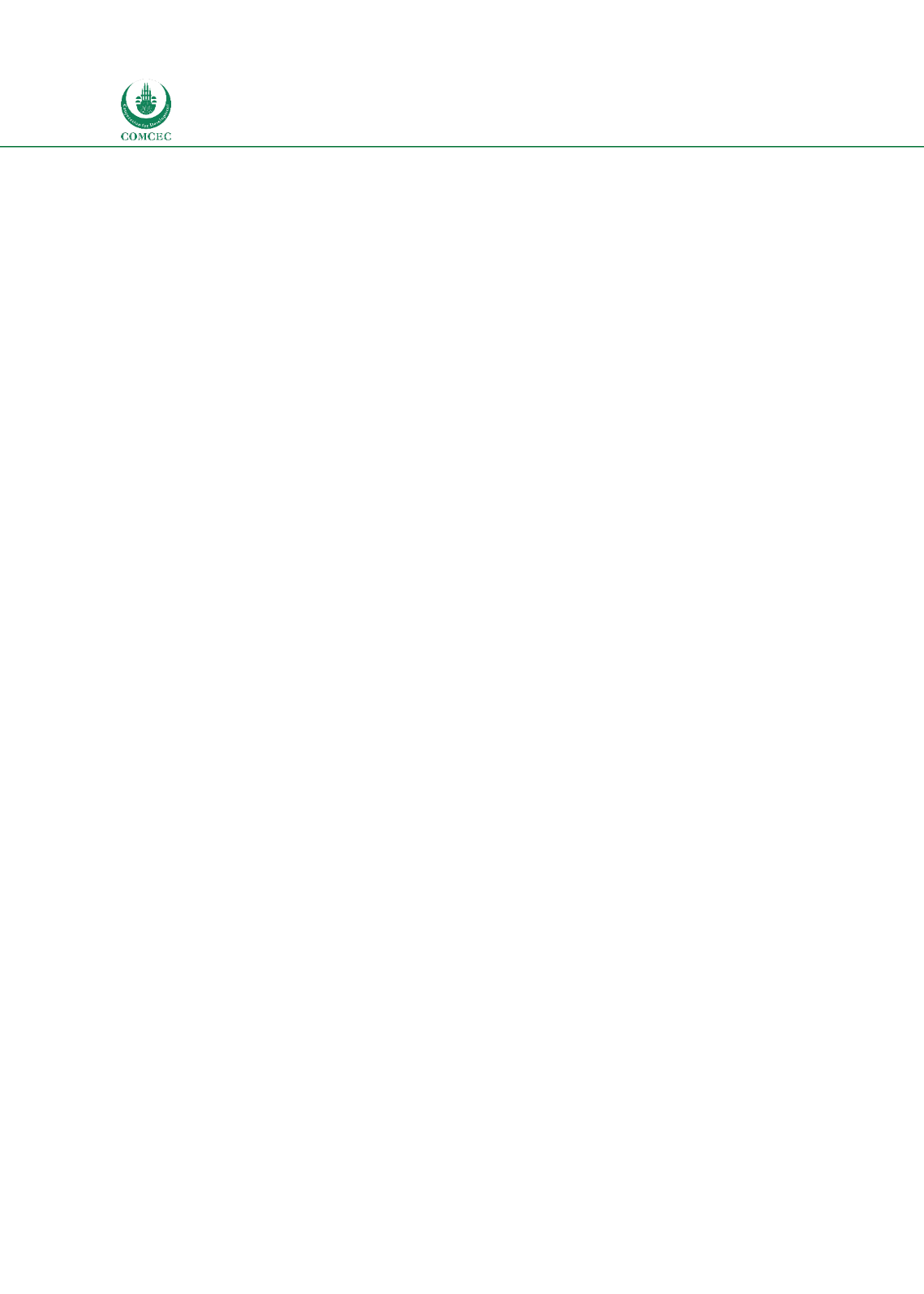

National and Global Islamic Financial Architecture:
Problems and Possible Solutions for the OIC Member Countries
110
4.7. Pakistan
Article 2 of the Constitution 1973 stipulates that Islam is the State Religion of Pakistan and
Article 38 (f) mandates that the State eliminate
riba
from the economy. The constitutional
institutions that work for promoting the Islamic system include the Council of Islamic Ideology
(CII) (which is an advisory body), the Federal Shariat Court (FSC) and the Shariat Appellate
Bench (SAB) of the Supreme Court of Pakistan as an apex court to decide the appeals made
against FSC judgments. Pakistan was among the first countries to initiate a transformation of
the whole financial system in accordance with the principles of the Shariah. After the CII
published a report on an interest-free economic system in 1980, the government took various
steps to Islamize the economy (Husain undated; Minhas 2012). However, as the
implementation of Islamic finance in Pakistan was not adequate, the Shariat Appellate Bench
(SAB) in 1999 concluded that the financial system has to be subjected to radical changes to
bring it into conformity with the Shariah.
The development of Islamic banking was renewed in 2002 taking a dual banking approach in
which both conventional interest-based and Islamic banking co-exist. A comprehensive legal,
regulatory and Shariah compliant framework was put in place. The main features of the
regulatory approach of the State Bank of Pakistan (SBP), the regulator of the banking sector,
are to promote Islamic banking on a sound and distinct footing, with consultations and
collaboration
with local and international stakeholders; and to also provide an enabling
environment with regards to the legal, regulatory, supervisory, liquidity management
framework, taxation regime and financial accounting & reporting framework. The Government
instituted the ‘Steering Committee for promotion of Islamic Banking’ in 2013 to speed up work
on Islamization. The Committee is headed by the Deputy Governor, SBP with representation
from high level policy makers, bankers and the Shariah scholars associated with the banks.
The Committee has reviewed the legal, regulatory and taxation frameworks and is working for
development of an Islamic capital market.
The Islamic banking industry consists of Islamic banks, Islamic banking subsidiaries or the
stand-alone Islamic banking divisions of the conventional banks (collectively called Islamic
Banking Institutions IBIs). These have shown significant growth since 2002. The Islamic
banking assets are valued at PKR 1511 billion constituting 11.2% share in overall banking
assets in September 2015. As of September 2015, there were 5 dedicated/fully-fledged Islamic
banks that had a combined network of 986 branches. Seventeen conventional banks had a
network of 681 ‘stand-alone’ Islamic branches and 116 sub-branches. The outreach of IBIs has
also expanded and, as of September 2015, the branch network of IBIs consisted of 1,783
branches spread across 95 districts of the country (SBP 2015).
The insurance and non-banking financial institutions (NBFI) that includes different types of
funds, asset management companies, real estate investment trusts, leasing companies,
modaraba companies, and investment banks are under the regulatory purview of the Securities
and Exchange Commission, Pakistan (SECP). A total of 5 takaful companies operate in Pakistan
of which two offer ‘Family Takaful’. Conventional Insurance companies have recently been
allowed to open Takaful windows and they are in the process of preparations for offering
takaful services in line with the framework introduced by the SECP. The IBIs are also offering
banka-takaful policies (both family and investment) to their customers on behalf the takaful
companies. The total Shariah complaints assets in the NBFI sector are PKR 204.44 billion (USD
1.95 billion) constituting 27.4% of the total in Feb 2016. The growth in Shariah compliant NBFI
















